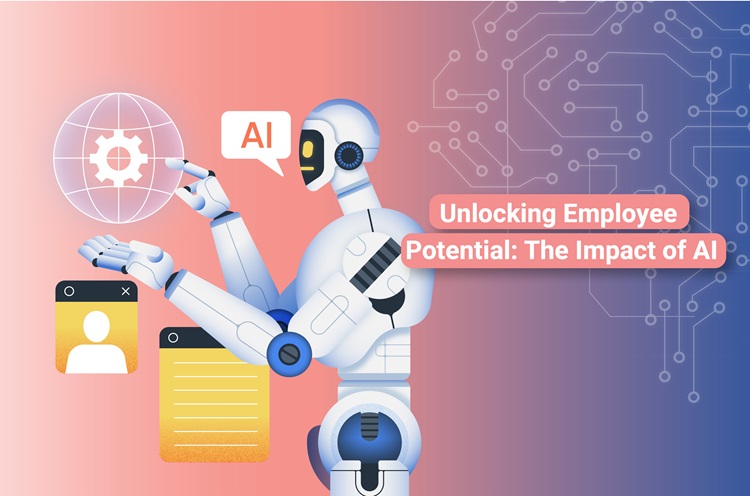The introduction of Artificial Intelligence (AI) into the workplace has been met with both excitement and trepidation. On one hand, AI can help employees be more productive, reduce errors, and increase efficiency. On the other hand, some worry about job security and the potential for AI to replace humans in the workplace. However, recent research shows that AI can be beneficial for employees, helping them to increase their productivity and be happier at work.
AI Improves Employee Productivity by 66%
The Nielsen Norman Group conducted a research study in which they examined the impact of AI on employee productivity. They found that using generative AI (like ChatGPT) in business improved users’ performance by 66%, averaged across three case studies. This means that deploying generative AI across all business users can potentially increase productivity by around 66%.
On average, across the three studies, generative AI tools increased business users’ throughput by 66% when performing realistic tasks. In the first study, AI-assisted users completed tasks 33% faster than those who weren’t using AI. In the second study, business professionals who used AI could write 59% more business documents per hour. In the third study, AI-assisted users completed tasks 50% faster than those who weren’t using AI.
Narrowing Skill Gaps
The research also found that AI can help to narrow skill gaps between employees. In the first study, AI-assisted users had a higher task success rate than those who weren’t using AI. In the second study, AI-assisted users had a higher task success rate than those who weren’t using AI. In the third study, AI-assisted users had a higher task success rate than those who weren’t using AI.
The exciting findings from the research don’t stop with increased productivity and work quality. AI can also help to narrow the skill gaps between employees. For example, the Harvard Business Review study found that AI-enabled digital tools can help workers transition from one role to another by segmenting tasks for either AI automation or AI augmentation. AI can also help to educate workers by providing them with the latest capabilities, and help them to evaluate their performance to reflect their learning and the help they give others.
Helping Employees Succeed with Generative AI
To help employees succeed with generative AI, the Harvard Business Review study suggests a framework called STEP. This framework consists of four interrelated activities: segmenting tasks for either AI automation or AI augmentation, transitioning tasks across work roles, educating workers to take advantage of AI’s evolving capabilities, and evaluating performance to reflect employees’ learning and the help they give others.
The authors of the study also suggest that companies should create an AI policy to ensure that their internal employees understand what is appropriate use. Additionally, companies should provide employees with the opportunity to learn from one another and to take advantage of the new capabilities that AI offers.
AI Helped Workers Be More Productive, Happier at Work
A study conducted by Erik Brynjolfsson, Danielle Li, and Lindsey R. Raymond found that generative AI can actually boost productivity for workers. The AI system used by some of the workers in the study consisted of a GPT-based large language model along with machine learning algorithms. This AI system helped out the customer support agents by providing suggested responses to customer inquiries.
The study also found that the generative AI tool helped to retain workers. In particular, it was beneficial for those who are relatively new to the company. The authors of the study noted that workers didn’t have to use what the AI system suggested, but that it helped to make their jobs easier and more efficient.
Conclusion
The research shows that AI can be beneficial for employees, helping them to increase their productivity and be happier at work. AI can help to narrow skill gaps between employees, help them transition from one role to another, and provide them with the latest capabilities. Additionally, AI can help to retain workers by making their jobs easier and more efficient. Thus, AI can be a valuable tool for companies looking to improve their employees’ performance and satisfaction.
